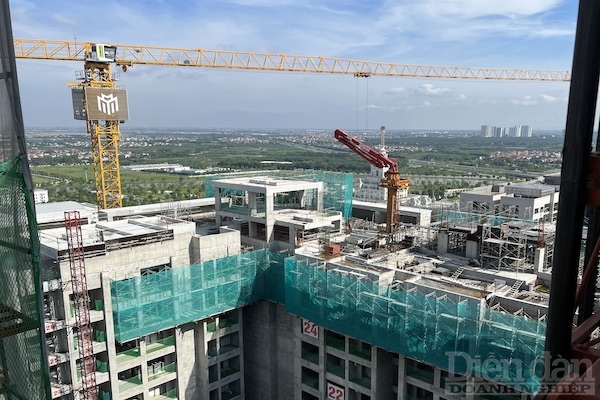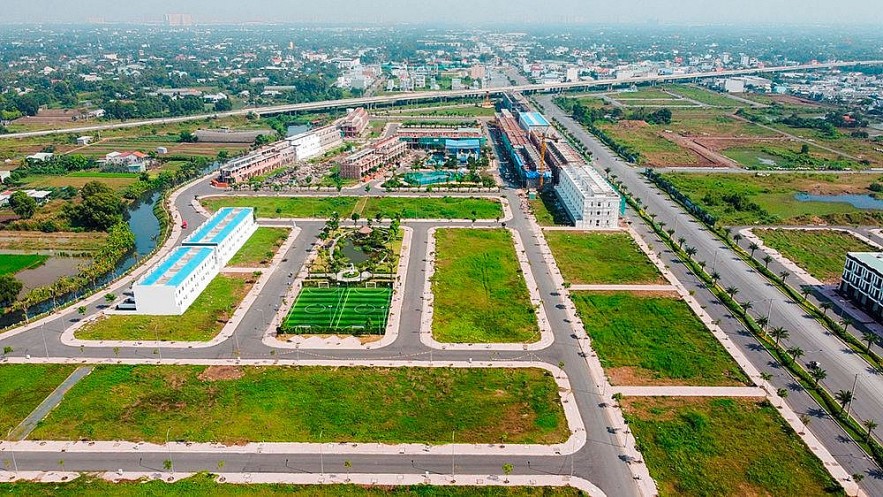Draft Land Law: Land reclamation for regulating land value diffrences deemed necessary
This is the stance taken by the Economic Committee of the National Assembly on the morning of August 30th's specialized session of National Assembly delegates discussing the draft Land Law (amendment) project.
Clarifying the Mechanism for Regulating Land Value Discrepancies
According to the latest draft, the State has the authority to establish policies for the collection and allocation of financial resources related to land; to regulate the portion of added value from land not brought about by land users' investments through tax policies, land use fees, and land rent.

The land requisition plan is designed in two directions for National Assembly's delegates' opinions.
In order to provide open and transparent land access, boost budget revenue, satisfy the needs of socioeconomic development, aid resettlement, and promote social welfare, the State first reclaims land and assigns land use rights to a state-established land development fund for sale.
Second, this substance is not specified in the draft land law.
The state's intention to reclaim land is supported by NA Economic Committee Chairman Vu Hong Thanh in an effort to reduce the added value discrepancies brought on by adjustments to infrastructure investment and planning.
Mr. Thanh stressed that this measure seeks to strike a balance between the needs of the government, the people, and the investors. Citizens whose land is taken by the State will receive compensation and assistance with relocation.
In addition, many viewpoints contend that the provisions in the draft Land Law list instances of state land reclamation as rigid and fail to effectively reflect and resolve the underlying concerns when it comes to land reclamation for economic and social development for national and public purposes.
The plan of recording cases of land reclamation for economic and social development for national and public purposes has the advantage of ensuring clarity, simplicity of monitoring, and application, according to the NA's Standing Economic Committee.
The disadvantage of outlining extremely particular and thorough programs and works for land reclamation is that they are not all-inclusive. Discussions have shown a disagreement about whether the existing strategy adequately explains the need for these projects and complies with Article 54 of the Constitution.
NA's Delegate Tran Van Lam (permanent member of NA's Finance and Budget Committee), who spoke at the Conference, argued that the aforementioned regulation can only be "partially realized" through project bidding and the auctioning of land use rights. "How do we manage the disparities in land value for projects that don't use auctions or bidding? To fix this, we need a clear procedure", he stated.
NA's Delegate Tran Van Lam asserts that changes in property classification, infrastructure spending, zoning regulations, and land value all benefit land users. Some displaced residents are given compensation following a road expansion, but those who stay gain from the changes in location and property value. The draft does not, however, yet include a clear policy to deal with this situation.
Therefore, he suggested that land use records should reflect zoning changes that have an impact on property value. There won't be any difference in land value if the person keeps using the property. The land value differential, however, will be stated in monetary terms if they engage in trades or transfers, and it should be controlled by the budget. He said, "To maintain justice and transparency in policies, we need to research and keep making adjustments.
Only Agreements should be Allowed for Commercial Projects Aligned with Land Use Purposes
NA's Delegate Nguyen Cong Long of the Dong Nai Provincial People's Council offered suggestions at the Conference about Article 127 of the proposed Law. The document presents two possibilities.
He made it clear that Option 1 is applicable to commercial housing projects where land use rights or other forms of land can be agreed upon, enabling businesses to agree and build commercial projects on non-residential land.
According to NA's Delegate Nguyen Cong Long, this matter is strongly related to the revised draft Housing Law. This topic has been hotly discussed in the Assembly hall before and is not brand-new.

"The Standing Committee of the National Assembly had Report No. 104 on January 1, 2022, in response to which it was stated explicitly that it was unnecessary to include a clause allowing for the use of non-residential land for commercial housing projects in order to prevent policy exploitation and the depletion of state resources", said Mr. Nguyen Cong Long.
NA's Delegate Nguyen Cong Long suggested clarification after observing that nothing has changed since then to justify altering this opinion. Therefore, in his opinion, Option 1 as described in Article 127 of the proposed Land Law (amendment) should be taken into consideration while the provision should be kept in place.
In Mr. Long's opinion, the Resolution 18-NQ/TW must be applied in this case, sustaining the system of agreements between corporations and citizens for the transfer of land use rights for the implementation of urban developments and commercial housing projects. Due to their fundamentally different natures, Delegate Nguyen Cong Long advised making a clear distinction between a land requisition and an agreement. Additionally, he underlined the importance of giving changing land use intentions due thought.
NA's Delegate Nguyen Cong Long suggested taking the clause in Article 127 of the draft under consideration in order to allow parties to agree to conduct commercial projects that are in line with the goals and plans for the use of the land. The draft's two possibilities don't offer a reliable solution.








